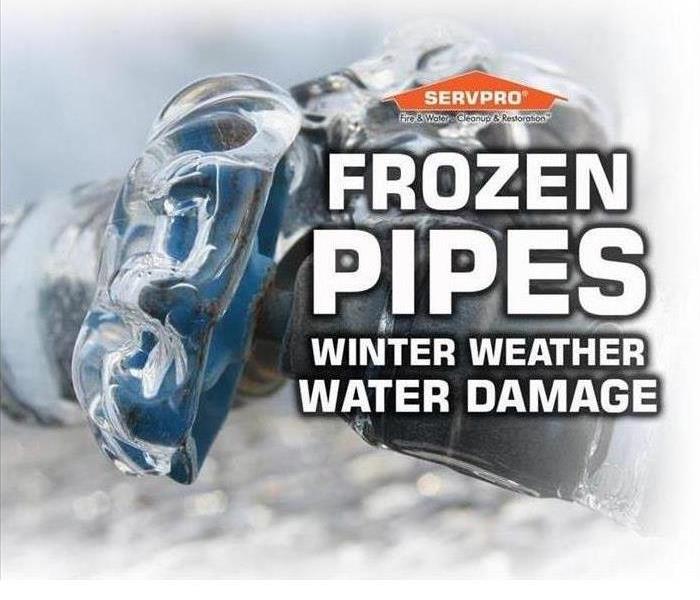Frozen Pipes: A Winter Water Damage Emergency
10/26/2020 (Permalink)
We can’t control the weather frigid winter temperatures are here in the Midwest, the lower temperatures cause a new set of seasonal Nebraska property disasters including frozen pipes, ice dams and other frozen water damage concerns.
Every winter our SERVPRO of Lincoln professionals help countless homes with the restoration, cleanup and repair of their property following a frozen water property disaster.
Why is a Frozen Pipe a Concern?
- When water begins to freeze, it expands. This can cause both plastic and metal pipes to burst, possibly leading to significant water damage to your home or business.
- Since water expands when it freezes, it puts unwanted pressure on pipes.
- As water freezes, the force exerted from the expansion can cause a pipe to burst, regardless of the strength of the material.
- You may not know you have a burst pipe as the water has turned to ice. Once the temperature starts to warm and thawing begins, leaking and flooding can occur.
FROZEN PIPE WATER DAMAGE TREATMENT AND RESTORATION
The key to avoiding costly secondary damage is to handle every water problem as a real threat to your property with proper mitigation. Our SERVPRO of Lincoln team has the equipment, training and experience to find and dry unseen water before secondary damages occur. We begin removing the standing water from your property with extraction methods, and rapidly dry your structure and contents with dehumidifiers that lower the indoor humidity levels, so your building dries out quickly. When time matters, technology and equipment must be counted on to perform. SERVPRO of Lincoln professionals will answer your call with rapid action and a full arsenal of drying equipment.
FROZEN PIPE PREVENTION
Short- and Long-term solutions for low temperature plumbing problems include:
- Locate and seal cracks and openings in the walls, attic, basement or crawlspace.
- Weather strip and caulk around crawlspace doors and basement windows.
- Make sure your home is properly insulated. Pay special attention to areas where pipes are located.
- Insulate unprotected pipes and don't leave gaps. Pipe sleeves simplify the process. Keep the pieces tight against each other and seal the slits and joints with duct tape.
- Install storm windows over basement windows or replace the old windows with energy-efficient alternatives.
- Find your main water shutoff so you can turn off the water quickly if needed. Locations vary — look in the crawlspace or basement where the water supply enters the house, inside a water meter box directly outside the house or near the water heater.
- Open cabinet doors under sinks to let warm air flow around the supply lines. Move any cleaners or other chemicals out of the reach of children.
- Keep your thermostat at the daytime setting during the night. If you'll be away for several days during subfreezing weather, keep it set above 55° F.





 24/7 Emergency Service
24/7 Emergency Service
